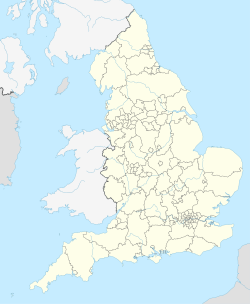Mundham | |
|---|---|
Village and Civil Parish | |
Clockwise from top: St Peter's Church, St Peter's Norman doorway, and the Mundham village sign | |
| Coordinates: 52°31′41″N 1°26′28″E / 52.528°N 1.441°E | |
| OS Grid Reference | TM335978 |
| Sovereign State | |
| Country | |
| Region | |
| County | |
| District | South Norfolk |
| Ward | Loddon |
| Civil Parish | Mundham |
| Founded | c.130 AD[2] in the Pax Romana |
| Split into Magna & Parva | Before 1224[3] |
| Reunification | 1454 |
| Government | |
| • Type | Parish Council |
| • Body | Mundham Parish Council |
| Area | |
| • Total | 6.31 km2 (2.44 sq mi) |
| Elevation | 30 m (98.4 ft) |
| Highest elevation | 41 m (134.5 ft) |
| Lowest elevation | 16 m (52.5 ft) |
| Population (2021)[1] | |
| • Total | |
| • Ethnicity (2021 census)[1] | 100% White |
| • Religion (2021 census)[1] | 63% Christian
|
| Time zone | UTC+0 (GMT) |
| • Summer (DST) | UTC+1 (BST) |
| Post Town | NORWICH |
| Postcode District | NR14 |
| ONS | E00136704[7] |
| ITL | UKH17 |
| Police | Norfolk Constabulary |
| Fire and Rescue | East of England |
| Ambulance | East of England |
| UK Parliament | South Norfolk |
| Website | mundhamparishcouncilweb |
Mundham, historically Mundaham or Mundhala,[8] is a small village and civil parish in the county of Norfolk, England. Archaeological and toponymic evidence of Mundham's existence predates its appearance in the Domesday survey of 1086, dating back to c.130 AD in the late Pax Romana period,[2][9] however, it was not called Mundham until sometime between the 5th and 7th centuries, although there has been consistent activity in the area since the early Neolithic period.[10] In the 2011 census, the population was 177 in 64 households,[11] however in the 2021 census, the population had dropped to 147, in 67 households.[1] The parish covers an area of 6.31 km2 (2.44 sq mi), and is approximately 9.1 miles (14.6 km)[12] southeast of Norwich and 13.5 miles (21.7 km)[13] west of Great Yarmouth.
For the purposes of local government, it falls within the district of South Norfolk, however Mundham does have a parish council responsible for local matters laid down by law, including a role in local planning, it consists of five councillors, and a clerk.[14][15] The village contains a number of heritage-listed buildings, which include a 12th-century church, multiple farmhouses, and the ruins of a 13th-century church.[16] The fields and woodland surrounding Mundham have changed little in the past 500 years, and the village itself remains rural with a low population density compared to the national average.[17]
Mundham is located in the electoral district of Loddon, which is part of the South Norfolk district of the county of Norfolk, England. Near the centre of Mundham, there is a small stream which flows into the River Chet. Mundham borders the River Chet to the north, between Mundham and Bergh Apton, and is located 11 miles southeast of Norwich. In the west, it borders Seething, while in the northeast, it borders Sisland. In the southeast the extensions of Loddon reach. In the south Mundham borders Thwaite, and in the southwest it borders with Hedenham.[18] The village sign is located near St Peter's Church, and depicts a series of houses in the foreground, with St Peter's church and the millennium oak in the background, the sign's supports are carved into a sheath of wheat, with a small mouse and a poppy hidden within them.[19][20]
- ^ a b c d e f "Citypopulation.de, Mundham". Retrieved 24 April 2023.
- ^ a b "MNF21872 - Norfolk Heritage Explorer". Retrieved 13 October 2022.
- ^ "MNF10459 - Norfolk Heritage Explorer". Retrieved 13 October 2022.
- ^ "Mundham Elevation". Retrieved 3 January 2023.
- ^ "Mundham Elevation- Max". Retrieved 24 April 2023.
- ^ "Mundham Elevation- Min". Retrieved 24 April 2023.
- ^ "ONS map: E00136704". Retrieved 7 February 2023.
- ^ "The Domesday Book Online - Norfolk M-R". Retrieved 13 October 2022.
- ^ "Norfolk Heritage Explorer: St Peter's Church". Retrieved 13 October 2022.
- ^ "Norfolk Heritage Explorer: 28342". Retrieved 13 October 2022.
- ^ "Parish population 2011". Retrieved 5 September 2015.
- ^ "freemaptools.com: Mundham to Norwich". Retrieved 5 January 2023.
- ^ "freemaptools.com: Mundham to Great Yarmouth". Retrieved 5 January 2023.
- ^ "Mundham Parish Council Website". Retrieved 14 October 2022.
- ^ "Mundham Parish Council Register of Interests". Retrieved 4 January 2023.
- ^ "Listed Buildings in Mundham, South Norfolk, Norfolk". Retrieved 13 October 2022.
- ^ "Ons.gov.uk: Point 5". Retrieved 14 October 2022.
- ^ "Google Map of Mundham". Retrieved 13 October 2022.
- ^ See image File:Mundham village sign 3.jpg
- ^ See image File:Mundham village sign 4.jpg





